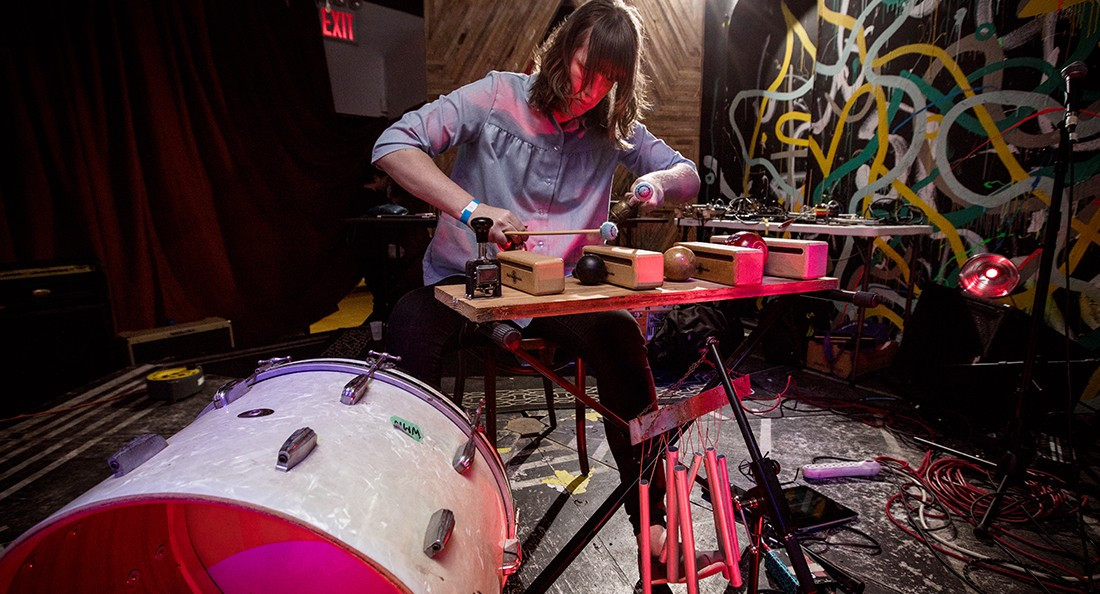Expanding gender’s vocal range
Contralto to screen at send + receive sound art festival
Contralto, American composer Sarah Hennies’ 2017 docu-symphony about trans women’s voices, takes its name from the musical term for “the lowest female singing voice.” The film features fleeting head-and-shoulders video clips of trans women performing vocal exercises, saying simple phrases and simply breathing, set to a densely complex composition for percussion and strings.
Contralto will be screening at Cinematheque on Oct. 6, followed by a Q-and-A with Hennies herself, as part of the 20th annual send + receive festival.
Festival director and curator crys cole describes send + receive as an opportunity to expand Winnipegers’ ideas about what sound is.
“send + receive is a festival that basically is all about celebrating and giving a platform to sound art and experimental music practices,” she says.
For cole, Contralto is part of a larger theme she sees running through this year’s festival.
“This year, there’s a lot of artists I’ve invited who have really personal connections to their work, and that was something I felt very strongly with Sarah (Hennies),” she says.
Contralto offers snapshots and sound-bites, fragments of speech and song. Even in a section of the piece where the participants are clearly speaking about how they experience their voices as trans people, the film is edited so that we are never shown a complete thought or idea, and so are left with only the sound of the voice itself.
“You’re just getting a little peek into (these individuals),” cole says. “You feel this sincerity and this feeling of exposure, but you’re not getting all that emotion. I find it really moving, and I find it really funny, and I find it really awkward. It does all these really beautiful things.”
There is no medical or hormonal procedures that can raise trans women’s voices to the range of a cis woman. Mieke Ruth, a University of Winnipeg student and community organizer, says that this makes music an especially potent and exciting space for trans women to assert identity.
“A lot of trans women in music are very unapologetic about singing the way they sound and still asserting themselves as women,” Ruth says. “Even though they haven’t done much to (alter) their voice, they still don’t sound like a male singer would, and you can sort of hear your own struggles in what they sound like in their act of not conforming to expectations of what our voices should sound like.”
For Ruth, music is a way to move the conversation about trans identities beyond rigidly binary understandings of gender.
“I think music is a really powerful space for us to express ourselves that def(ies) mainstream expectations … that are built up for us in mainstream forms of representation,” they say. “It’s never a trans woman who’s mostly pre-transition who you see in a popular TV show.”
Cole says that within the experimental music community, there have always been trans and gender-nonconforming artists. Programming artists like Hennie's is a way of acknowledging this frequently forgotten legacy of underground art movements, revealing what has always been here and creating a space for the work to flourish.
“This is not new. This is our history, this is what this form is all about,” she says. “These are the people who were treading the way for us.”
send + receive runs from Oct. 4 to 7. Tickets to Contralto are $10. For more information about the film and festival, visit sendandreceive.org.
Published in Volume 73, Number 5 of The Uniter (October 4, 2018)







